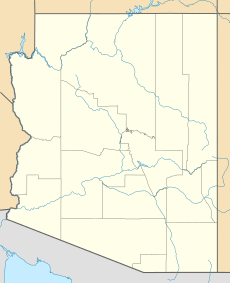Saddle Mountain (Grand Canyon) facts for kids
Quick facts for kids Saddle Mountain(Grand Canyon) |
|
|---|---|

~southwest aspect from North Rim, Walhalla Plateau, (Kaibab Plateau)
|
|
| Highest point | |
| Elevation | 8,424 ft (2,568 m) |
| Prominence | 883 ft (269 m) |
| Isolation | 2.04 mi (3.28 km) |
| Parent peak | Peak 8881 |
| Geography | |
| Location | Grand Canyon National Park Coconino County, Arizona, US |
| Parent range | Kaibab Plateau (Walhalla Plateau) Colorado Plateau |
| Topo map | USGS Point Imperial |
| Geology | |
| Age of rock | Permian-(prominence) |
| Mountain type | sedimentary rock: limestone, siltstone, mudstone, sandstone, shale |
| Type of rock | Kaibab Limestone, Toroweap Formation, Coconino Sandstone, Hermit Shale, Supai Group, Redwall Limestone, Muav Limestone, Bright Angel Shale |
Saddle Mountain (Grand Canyon) is a tall mountain peak in the eastern part of the Grand Canyon. It stands at 8,424 feet (about 2,567 meters) above sea level. This impressive summit is located in Coconino County, in northern Arizona, USA. It is special because it is the highest point within Grand Canyon National Park. Saddle Mountain also forms part of the park's northeast border.
The mountain is home to the Saddle Mountain Wilderness area. This area includes the Saddle Mountain Wilderness Trail, which is popular for hiking. Water from the mountain flows into two creeks. The short Saddle Creek drains towards the Colorado River in the Marble Canyon area. The much larger Nankoweap Creek drainage flows for about 25 miles, carrying water south and then east from the mountain.
Contents
About Saddle Mountain
Saddle Mountain is a significant landmark in the Grand Canyon. Its high elevation offers amazing views of the surrounding landscape. The mountain's name likely comes from its shape, which might look like a saddle from certain angles. It is a key feature of the Kaibab Plateau, which is a large, flat-topped area that forms the North Rim of the Grand Canyon.
Where is Saddle Mountain?
Saddle Mountain is found in the northeast section of Grand Canyon National Park. It is part of the Walhalla Plateau, which is itself a part of the larger Kaibab Plateau. The mountain is about 2 miles southwest of Point Imperial. Point Imperial is a well-known viewpoint on the North Rim, offering stunning panoramic views. The mountain's location makes it a gateway to some of the more remote and wild parts of the Grand Canyon.
What is Saddle Mountain Made Of?
Saddle Mountain is made up of different types of sedimentary rock. These rocks are formed over millions of years from layers of sand, mud, and ancient sea creatures. The main types of rock found here include limestone, siltstone, mudstone, sandstone, and shale.
Geologists have identified several specific rock layers that make up the mountain. These include the Kaibab Limestone at the top, followed by the Toroweap Formation, Coconino Sandstone, and Hermit Shale. Below these are the Supai Group, Redwall Limestone, Muav Limestone, and Bright Angel Shale. These layers tell a story of Earth's ancient past, showing how the environment changed from shallow seas to sandy deserts over millions of years, mostly during the Permian period.
Exploring the Wilderness
The Saddle Mountain Wilderness is a protected area. It means the land is kept as natural as possible, with minimal human impact. This wilderness offers a chance to experience the Grand Canyon's wild beauty. The Saddle Mountain Wilderness Trail allows hikers to explore this unique environment. It's a great place for adventure and to see the natural plants and animals of the North Rim.
 | May Edward Chinn |
 | Rebecca Cole |
 | Alexa Canady |
 | Dorothy Lavinia Brown |



